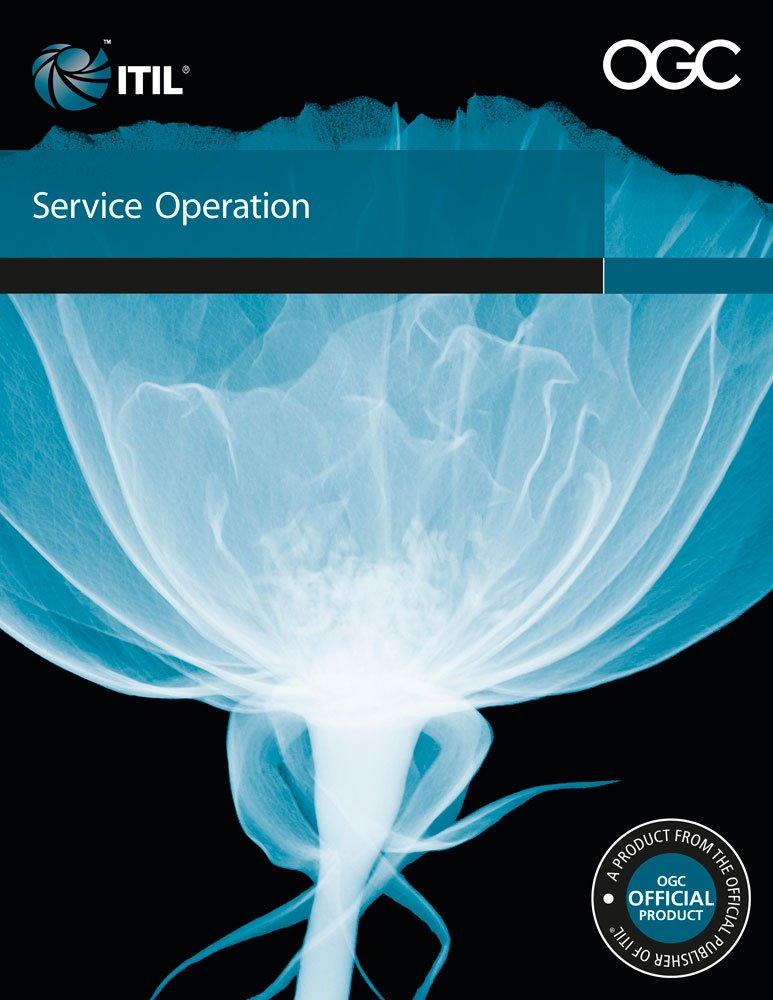ITIL® Service Operation (SO)
You Will Learn How To:
Prepare for and pass the ITIL Service Operation (SO) Exam.
Plan key activities for ITIL Service Operation processes.
Maintain stability in SO while allowing for changes in design, scale, scope and service.
Support operations through new models and architectures.
Evaluate SO processes with critical success factors and KPIs.
Workshop Activities Include:
Familiarizing yourself with SO foundation terms and concepts.
Matching SO terms and definitions.
Determining business value and critical success factors for SO processes.
Considering SO functions and processes.
Applying process and technology concepts to a given scenario.
Daily review sessions and exam practice.
Important Course Information:
Pre-course reading required.
Approximately 1 hour of home study each evening.
Course tuition includes the ITIL Intermediate Qualification: Service Operation Certification Exam, as well as overview maps that illustrate the ITIL lifecycle stages, serving to reinforce key concepts and functioning as valuable reference tools.
The ITIL Foundation Certificate is required to attend this course and take the ITIL Certification Exam on the final day.
Who Should Attend:
This course is valuable for those who want to achieve the ITIL Intermediate Qualification: Service Operation Certificate. The ITIL Foundation Certificate is required to attend this course and to take the ITIL Intermediate Service Operation exam on the final day.
Training Hours:
Days 1 – 3 Course Hours:
8:30 a.m. – 4:00 p.m.
Four 10-minute breaks
60-minute lunch
Day 4 Course Hours – Last Day:
8:30 a.m. – 2:30 p.m.
Two 10-minute breaks
60-minute lunch
Free Course Exam* 1:00 p.m. – 2:30 p.m.
here to add your own text
Course Content:
ITIL Service Operation: Introduction and Overview:
Service operation and the overall ITIL lifecycle
Principles and objectives
Functions and common activities
How service operation creates business value
Balancing conflicting goals
Internal IT vs. external business view
Stability vs. responsiveness
Quality of service vs. cost of service
Reactive and proactive activities
Core Service Operation Processes:
Policies, principles and basic concepts
Purpose and objectives
Value to business
Process activities, methods and techniques
Triggers, inputs, outputs and interfaces
Challenges and risks
Primary ITIL processes within service operation:
Event management:
Active and passive monitoring
Restoring normal service quickly through incident management
Request fulfillment|
Managing problems with root cause analysis
Access management
Common Service Operation Activities:
Monitoring and control of IT operations
Detecting the status of services and CIs
Taking appropriate corrective action
Console management/operations bridge: a central coordination point for monitoring and managing services
Management of the infrastructure
Mainframe, server and network management
Storage and database administration
Managing directory services and desktop support
Facilities and data center management
Improving operational activities
Operational aspects from other lifecycle phases:
Change, configuration and release
Availability
Capacity
Service continuity
Organizing for Service Operation:
Mapping service operation functions to activities
Roles and responsibilities
Understanding the organizational context
Service operation function structure:
Service desk
Technical management
IT operations management
Application management
Key functions of the service desk
Logging incidents and requests
First-line investigation and diagnosisManaging the lifecycle of incidents and requests
Keeping users informed
Structuring the service desk
Local vs. centralized
The virtual service desk
Follow the sun operation
Technology-Related Issues:
Technology, tools and expertise requirements
Defining architecture standards
Involvement in the design and build of new services and operational practices
Contributing to service design, service transition and continual service improvement projects
Evaluating change requests
Matching technology to the organizational situation
Implementation Challenges and Risks:
Managing change in service operation
Service operation and project management
Assessing and managing risk
Operational staff in design and transition
Planning service management technologies
Identifying Critical Success Factors (CSFs)

